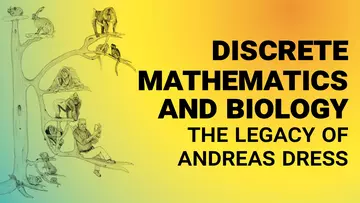From clusters and splits to biodiversity conservation
- Kristina Wicke
Abstract
Phylogenetic diversity (PD) is a prominent quantitative measure of the biodiversity of a collection of present-day species. If T is an edge-weighted phylogenetic tree with leaf set X, the PD score of a subset S of X is the sum of the weights of the edges of the minimal subtree of T connecting the species in S. PD underlies various popular evolutionary isolation metrics such as the Fair Proportion or Equal Splits index used to rank the elements in a collection of species for conservation.
In the first part of this talk, I will give a general introduction to PD and PD indices as well as an overview of mathematical questions that arise in conservation phylogenetics. In the second part of the talk, I will then discuss two recent developments. First, I will focus on non-treelike evolution and present some natural approaches towards defining and optimizing variants of PD on phylogenetic networks. Second, I will discuss a framework for analyzing and comparing different PD indices, leveraging the interplay between collections of clusters and collections of splits, an approach pioneered in combinatorial phylogenetics by Andreas Dress. I will conclude by highlighting some open questions and directions for future research.
Parts of this talk are based on joint work with Magnus Bordewich, Vincent Moulton, Charles Semple, and Andreas Spillner.


